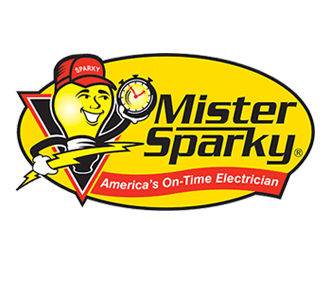Frequently Asked Questions
Q. When Should I Call an Electrician?
Many people think that you only need an electrician when you are constructing a new home, but this is simply not the case. In fact, if you have anything in your home that has to do with electricity needing repairs, it is far better to call in an electrician than to attempt to repair it yourself. DIY mistakes can be costly and in some cases dangerous. With DIY projects, not only is there a risk of electrocution, but there is also a risk that an improper repair may create fire hazard.
Situations That Require an Electrician Include:
- Fuses keep blowing or circuit breakers keep tripping
- GFCI (Ground Fault Circuit Interrupter) outlets are not installed in a kitchen, bathroom, garage or the outdoors
- Extension cords are required because there are too few outlets in a room or they are spaced too far apart on the walls
- There is rust on or near your main service panel indicating water damage
- Lights dim when appliances are turned on
- Electrical switches or outlets feel warm or tingly or do not function properly
- A need to add more outlets, switches or light fixtures in a room
- Appliances with 3-prong plugs can’t be used because outlets only accept 2-prong plugs
Q. How Do I Choose The Right Electrician?
Choosing the right electrician to do work on your home can be a frightening. Many people live with frustrating and sometimes dangerous problems because they are afraid of choosing a bad contractor.
Even though there are many people who will do poor electrical work by using cheap materials, overcharging, or not showing up on time, you will be happy to know that there are just as many people working in the electrical service industry who take pride in their work while being honest, hard-working and punctual.
Questions To Ask a Potential Contractor
1. Are You Licensed?
Always make sure the person you hire is a licensed electrician in Oklahoma. This should be a Class A electrical contractor license. Other types of licenses (e.g., Class B) do not allow the person to work on high voltage circuits, which is typically the type of work required to be done in a home (e.g., fixing an outlet, rewiring a light switch, etc.). The easiest way to check on this is to ask the electrician for their Oklahoma electrical contractor license number (e.g., OK84778) before checking that the license is up-to-date according to the Oklahoma Department of Labor and Industry web site. Also, take note that licensed electricians are required to carry a contractor’s bond and liability insurance, which protects you in the event of problems.
2. Do You Have References?
Most people who have a pleasant interaction with a contractor will happily testify on behalf of their experience. If the person you are hiring can’t provide a list of references upon request, that’s not a good sign. Always ask other customers if they were satisfied with the work, and make sure the contractor did come back promptly to address any problems.
3. How Long Have You Been in Business?
Ask how long a potential contractor has been in business. If they have been in business for several years, chances are they have been doing quality work for a long time (bad contractors usually go out of business quickly). Also, you want to hire someone that has completed projects similar to yours before. This will only give you confidence that they will be able to solve any problems correctly and in a quick manner.
4. Will You Provide an Estimate?
Evaluate the person during the estimating process by asking LOTS of questions. Before you sign up a contractor for any work, evaluate them on how they performed BEFORE the work is done.
5. Other Questions
- Did they show up on time for their appointment?
- Did they answer all of your questions?
- Did they tell you exactly how much all the work will cost or is just an “estimate” with the final cost to be determined after the work is completed?
- Did they explain in detail all the work that they are going to do?
It is likely that if you had a great experience during the estimating process, then you will also have a great experience when they do the job.
Q. What are Some Common Electrical Terms for My Home?
Service, Main or Electrical Panel:
This is the metal box in your home where electricity enters your home (from the power company). The electrical panel allows electricity to be distributed to the outlets, lights and appliances.
Inside the panel is either a set of fuses (for older homes) or circuit breakers, which limits the amount of electrical current that goes to each circuit.
Typical circuits are rated for 15 or 20 amps, however, larger circuits (e.g., 50 amp) are used for major appliances (e.g., air conditioner, range, etc.).
A typical home will have 1-3 circuits per room, depending on the size and power requirements of each room.
GFCI or Ground Fault Circuit Interrupter:
A special type of outlet that automatically shuts off when a short circuit to ground is sensed.
These are required by code in certain environments such as kitchens, bathrooms, garages or outdoors.
They can be typically recognized by the “RESET” and “TEST” push button switches located on them.




